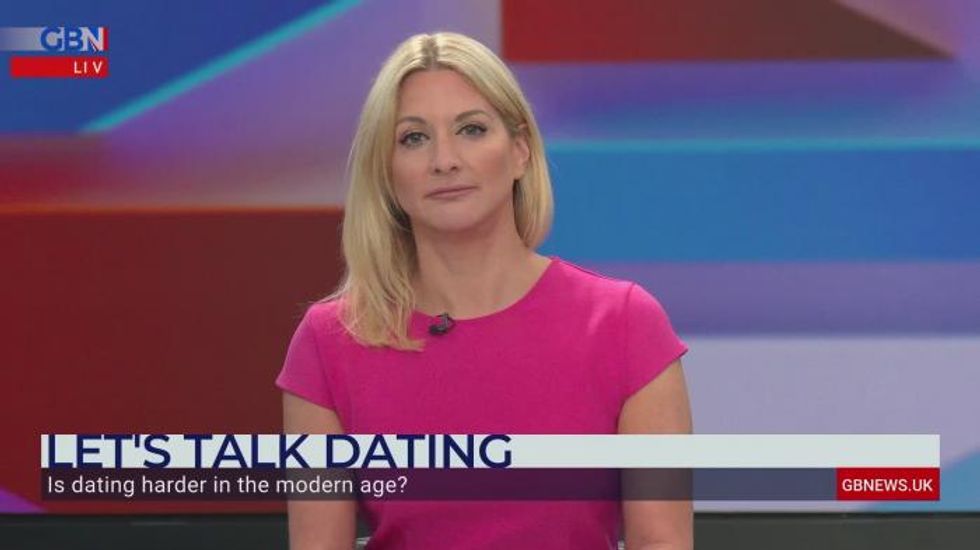Don't Miss
Most Read
Trending on GB News
Dating. Courting. Now, linking and swiping. The world of meeting a mate has changed, rapidly and radically. What seems like a trivial subject is actually far from it.
In fact, our relationships, efforts to find a relationship and efforts to sustain a relationship impose perhaps the greatest emotional and psychological strains on us in our lives.
Today, a dating pool once limited by distance and demography and social expectations is now an infinite space in which anything and anyone goes, at any point and for any reason, anywhere in the world.
Our very human need to connect, to feel loved and to love is fragmented across a range of platforms, enabling us to dress up in the camouflage of an online avatar to attract approval and affirmation, and maybe, just maybe, The One.
Yet is limitless choice good for us?
Is the ability to cower behind a two dimensional filtered truth the right way to go about forging an authentic and meaningful partnership?
Is having a clandestine digital life at our fingertips, detrimental to commitment as well as our self esteem?
But it is not only the psychological toll of dating we need to discuss in a world where our intimate connections prop up an industry worth a quarter of a billion pounds.
The dating revolution has ushered in novel crimes, introduced new cultural mores and is having an unprecedented impact on our societal expectations the likes of which we haven’t observed for decades.
During lockdown, dating fraud grew by 40% with 7754 online dating scams in 2020 alone, costing daters a staggering £74 million.
People who thought they had finally met the love of their life, someone to intimately bond with and share all their secrets with, instead found out their digital soul mate was a tech savvy con artist in Lagos who had been grooming them at their deepest emotional level in order to weave a fantastical story of financial woe to extort their life savings.
These frauds are no laughing matter.
Those who have been through the turmoil of being ghosted, benched, catfished, kittened or worse still, abused and assaulted at an arranged encounter, would testify to that. And the number is far, far higher than anybody suspects.
Courtship protocols have also enormously changed, in a world where everything is disposable and users hold out for a bigger, better offer.
Our pursuit of perfection is often vainglorious and rather than seeking to construct strategic partnerships with all of the sacrifice and work that such relationships take, many instead now feel locked in a hamster wheel of constantly rotating tests with the demands, perhaps particularly on women, insurmountable.
The three date rule feels long dead with sexual underpinned by the likelihood that if you don’t deliver, there is a queue of potential matches waiting to be messaged or swiped.
The strain is also hugely injurious to men.
When it comes to selecting a suitor, women are notoriously narrow minded, often discarding men based solely on height, and only responding to men in the top 5% of salary brackets.
The result is a cohort of men who feel repeatedly rejected and abandoned, while the lucky 5% who make it through the swiping stage are offered a limitless choice that perhaps is as destructive as it could be perceived fortunate.
From Uniform Dating to Plenty of Fish, OK Cupid, Match, Shaadi, Christian Dating, Hinge, Happn, Bumble, Reya, Grindr, Tinder, to name a tiny few, as well as a range of speed dating events and singles socials, why are so many Brits still lonely, dissatisfied and downright miserable?
With marriage rates falling, divorce rates rising, and new swipe based dating applications emerging by the day, investigation into the health implications of modern day dating is needed, from high risk sexual behaviour to the psychiatric impacts of instant gratification and rejection, the vulnerability of users living up to objectified standards while seeking peer validation and the depressing de-personalisation of our own approbation of others.
We need to talk about dating.











